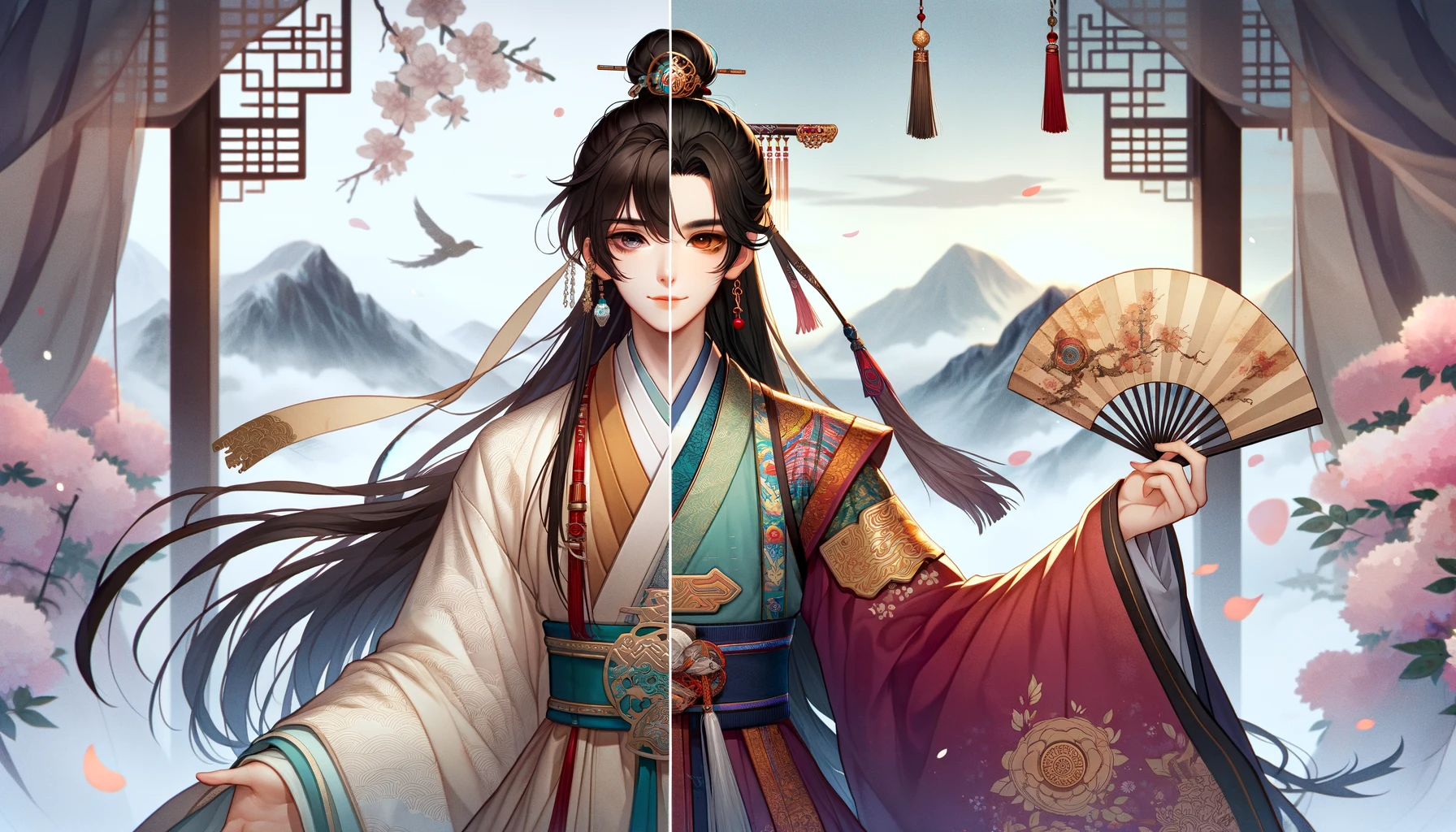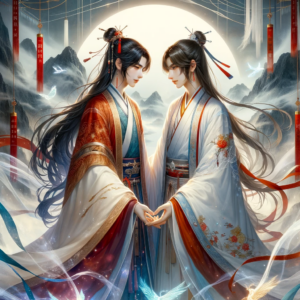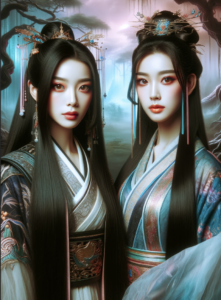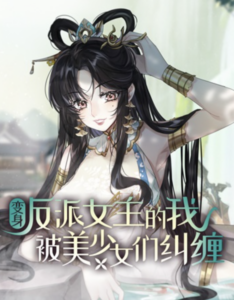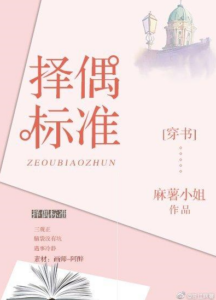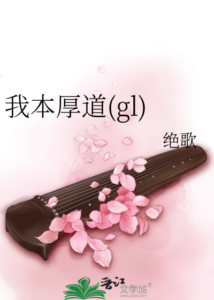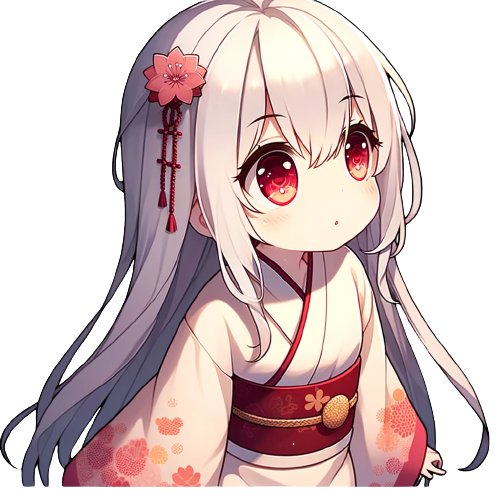Chinese light novels and Korean light novels have both carved out significant niches in the literary world. Each offers unique storytelling techniques, character development, and cultural nuances that captivate readers globally. This article will delve into the fascinating contrasts and comparisons between these two Asian literary powerhouses.
Chinese light novels, originating from the vast and diverse cultural backdrop of China, bring an array of genres and styles to the table. They’re known for their intricate plotlines, historical settings, and profound philosophical undertones. Whether it’s wuxia, xianxia, or modern urban tales, Chinese light novels have a broad appeal that transcends cultural boundaries.
On the other hand, Korean light novels, while equally compelling, often lean towards contemporary themes and character-driven narratives. They’re recognized for their emotional depth, relatable characters, and often incorporate elements of Korean pop culture. From fantasy to romance, Korean light novels have a unique charm that resonates with a wide audience.
What are Light Novels?
Light novels aren’t your regular novels. Peeling back the layers reveals a unique storytelling art that has swept the world off its feet. They’re often serialized novellas, often aimed at young adults, incorporating various genre elements. These range from fantasy, romance, to the supernatural – making them an exciting read for all tastes.
Years ago, most light novels remained accessible only to native readers due to the language barrier. But as their popularity grew, translations started to pop up. That’s when platforms like lightnovelsai.com stepped in. What better place to plunge into the captivating world of Chinese light novels than this platform? It’s got the engaging content you crave, in a language you understand.
Let’s dive a bit deeper.
Chinese and Korean light novels – both have their unique charms. Chinese light novels stand out for their intricate plotlines and attention to historical settings. It’s not uncommon to stumble upon philosophical undertones – a nod to the depth of thought going into these books.
Simultaneously, Korean light novels have carved a niche for themselves with character-driven narratives. Threading in elements of Korean pop culture, they portray contemporary themes appealing to the modern reader.
Taking a step back, it’s clear why light novels are making waves. They shy away from the one-size-fits-all approach of run-of-the-mill novels. Instead, they pack a punch, offering immersive narratives that cater to a wide audience. So, before reaching for that regular novel next time, maybe give a Chinese or Korean light novel a shot.
After all, there is a whole world of light novels waiting to be discovered.
Chinese Light Novels
Diving into the realm of Chinese light novels, it’s a world flourishing in popularity and capturing the hearts of readers across the globe. These literary works are more than just stories, they’re a reflection of Chinese history, philosophy, and culture, providing a riveting reading experience.
Popularity of Chinese Light Novels
The steady surge in Chinese light novel fandom is undoubtedly linked to the intriguing web of storytelling techniques that the genre employs. For those who crave striking narratives, that are a blend of the past and present, Chinese light novels are a perfect reading choice. Translated versions of these beautiful tales are available on platforms like lightnovelsai.com, contributing to their global appeal. Their international popularity can also be attributed to the lavish adaptation of these novels into dramas and popular animated series.
Characteristics of Chinese Light Novels
Setting the Chinese light novels apart are their signature characteristics. They often revolve around historical settings which encompass ancient dynasties and magical martial arts. Terrific character development and intricate plot-lines serve as the backbone of these novels. Embodying a strong philosophical undercurrent, these works stimulate the reader’s cognitive faculties while entertaining them. The pristine depiction of Chinese customs, traditions, and the insights into societal norms add a unique flavor to these light novels.
Despite the historical settings, the problems and experiences that characters face often resonate with the reader’s day-to-day life enhancing the reader’s connection with the narrative. Furthermore, Chinese light novels often feature an anti-hero who begins with moral ambiguities but undergoes transformation through a series of trials and tribulations.
The broad genre spectrum of Chinese light novels, ranging from fantasy, romance to supernatural elements, offers something for every reader profile.
The richness of Chinese light novels lies in their narrative complexity. They provide an immersive experience that subtly educates while offering mind-boggling entertainment. To grasp the essence of its allure, one might just have to dive into one of these alluring novels rather than to satisfy themselves with their mere descriptions.
Korean Light Novels
Moving eastwards from China, Korean Light Novels have made significant strides in the global literary landscape, their charm and appeal growing with each passing year. Like their Chinese counterparts, Korean light novels too offer a unique perspective on storytelling, ensuring a riveting read blended with a good dose of Korean culture.
Popularity of Korean Light Novels
Korean light novels have been gaining popularity worldwide, courtesy the maturing interest in Hallyu or Korean wave. Habitual readers at lightnovelsai.com, for instance, are sure to notice a significant increase in Korean novel titles. Furthermore, the strides made by Korean pop culture have also contributed to the rising appeal of their novels, as readers relish the intellectual journey these books set forth. Korean light novels are recognized across various demographics for their transformative narratives that traverse through modern-day themes and character-centric storylines.
Characteristics of Korean Light Novels
What sets Korean light novels apart, however, is their fresh and contemporary outlook. They don’t shy away from showcasing the reality of present-day life in Korea, with a touch of fantasy or supernatural, making these books relatable yet captivating. Transcending beyond the realms of reality, these books feature a combination of creativity, emotional depth, and engaging plots. A notable characteristic of Korean light novels is their character-driven narratives. These narratives allow them to explore their characters deeply, making for an engaging read, rich in Korean culture and realistic human experiences. This portrayal of faces of Korea in an enticing narrative undoubtedly makes for a compelling read, and holds its readers in magnetic suspense till the very end. Falling in love with these characters and their intricate world is an experience in itself, one that readers relish and come back for, again and again.
Undoubtedly, Korean light novels are a class apart, illuminating the literary world with their insightful narratives. Their unique blend of contemporary themes and familiar, relatable characters makes them a popular pick among fans. With the advent of translation platforms like lightnovelsai.com, this unique taste of Korean literature has been made available to a wider audience, thereby further contributing to their growing popularity. Embarking on a journey with Korean light novels can indeed be a rewarding experience, as they offer a captivating look at life in Korea, a chance to explore new cultural nuances, and an opportunity to delve into intricate, compelling narratives. After all, who wouldn’t want to immerse themselves in captivating stories that transport them to a different culture, even if just for a little while?
Differences between Chinese and Korean Light Novels
Despite their shared status as immensely popular forms of young adult literature, there are distinct variances in the writing styles, themes and genres, and cultural influences seen in Chinese and Korean light novels.
Writing Style
Chinese light novels stand out with their intricate plotlines, deeply layered characters, and the integration of historical and fantastical elements. This is where lightnovelsai.com shines. You’ll come across countless Chinese light novels with complex, immersive narratives that delight readers. They demand cognitive engagement from their audience, stimulating their intellect with rich philosophical underpinnings.
Conversely, Korean light novels lean more into character-driven narratives. They hone in on the emotional and psychological development of their characters. These character-driven narratives offer a fresh and contemporary outlook on storytelling, vividly encapsulating the complexities of modern human relationships and experiences.
Themes and Genres
The genre spectrum in Chinese light novels is vast. History, mystery, magical realism, the supernatural — you’ll find something that hits every niche on lightnovelsai.com. Stoicism, survival, honour, destiny; these universal themes seep into the very fabric of such stories, rooting the fantastical elements in the real world. It’s a flawless blend of old and new, the past and present.
As for Korean light novels, they are gaining recognition for their contemporary themes and versatility in genre. Fantasy, romance, slice-of-life, thrillers – the range is diverse and accessible. They weave together threads of realism with fantasy or supernatural elements, all set within the familiar dynamics of everyday Korean life.
Cultural Influences
Chinese light novels reflect Chinese history, hierarchy, family dynamics, and philosophical values. You’ll plunge into Chinese culture, left fascinated by narratives steeped in ancient mythology, folklore, and martial arts. This isn’t just entertainment; it’s a cultural exploration that adds depth to readers’ understanding of the Chinese lifestyle and mindset.
Korean light novels, on the other hand, capture the nuances of modern-day Korean life. From the pervasive influence of K-pop culture to the struggles of navigating the country’s competitive society, these novels give readers a keen understanding of what it means to live in contemporary Korea. The storylines resonate worldwide, largely because they tackle universal themes in a uniquely Korean context. Korean light novels also place significant emphasis on emotional depth and character relationships, echoing the deeply rooted collectivist culture of Korea.
Overall, understanding these differences not only enhances readers’ engagement with these texts but also opens up fresh channels of seeing and understanding the world. It’s this transportive quality of Chinese and Korean light novels that has been key to their booming popularity — a trend we may continue to see in the coming years.
Similarities between Chinese and Korean Light Novels
Storytelling Techniques
Looking closely, readers will spot a common ground among Chinese and Korean light novels: their innovative storytelling techniques. Both offer intricate, winding plotlines filled with compelling characters designed to grab readers from the get-go. Where Chinese narratives often blend historical context with magical martial arts, Korean stories stretch into contemporary themes, merging the contrast of the supernatural with day-to-day living in Korea. It’s these original twists that make these light novels stand out from the crowd.
Specifically, both types of novels tend to focus on character development over the course of the storyline. This shared emphasis on the characters’ emotional and psychological journeys helps to bond readers with the protagonists, encouraging them to keep turning the page to find out what happens next. If you’re a fan of good storytelling that stretches beyond ordinary boundaries, you can find and enjoy Chinese light novels on platforms like lightnovelsai.com.
Impact on Pop Culture
There’s no denying the significant influence of Chinese and Korean light novels on global pop culture. While Chinese light novels have fostered an understanding and appreciation for Chinese history and philosophy, Korean narratives capture the reality of modern-day life in Korea, offering a glimpse into the vibrant K-pop culture and hurdles of a competitive society. Both literary traditions have greatly contributed to the spread of their respective cultures, attracting a wide net of international readers and garnering a dedicated fan base worldwide.
These popular novels have inspired adaptations into comics, animations, movies, and television dramas, further enhancing their impact and cementing their importance in pop culture. Particularly in the case of Korean light novels, the Hallyu wave has significantly boosted the global attention towards Korean pop culture, with light novels playing a pivotal role in this cultural phenomenon.
Both Chinese and Korean light novels have evolved into more than just a literary trend – they are influencing cultural norms, shaping entertainment, and redefining the world of pop culture. With easy access to these novels through online platforms such as lightnovelsai.com, their reach and influence are likely to continue growing in the foreseeable future.
Read FREE AI Translated Chinese and Korean Light Novels
Chinese and Korean light novels each bring a unique flavor to the literary world. They’ve captured the hearts of readers globally with their unique storytelling techniques, intricate plotlines, and compelling characters. Chinese light novels, with their blend of historical context and magical martial arts, provide a taste of Chinese history and philosophy. On the other hand, Korean light novels, merging the supernatural with everyday Korean life, offer a glimpse into modern-day Korea and its vibrant K-pop culture. These novels aren’t just about entertainment; they’re about bonding readers with the protagonists and influencing global pop culture. Given the easy access to these novels through online platforms, their popularity is set to soar even higher. Whether you’re a fan of Chinese historical drama or Korean modern life, there’s a light novel out there for you.
What makes Chinese and Korean light novels popular worldwide?
Chinese and Korean light novels are popular worldwide due to their unique storytelling techniques and cultural nuances. They offer intricate plotlines, compelling characters, and a blend of historical context with magical martial arts (Chinese) or the supernatural with day-to-day living in Korea (Korean). These novels focus on character development, creating a bond between readers and the protagonists. Chinese light novels reflect Chinese history and philosophy, while Korean light novels capture modern-day life in Korea and K-pop culture. Their popularity has led to adaptations into various forms of media and their influence on global pop culture continues to grow.
How do Chinese light novels differ from Korean light novels?
Chinese light novels differ from Korean light novels in their storytelling and cultural focus. Chinese light novels combine historical context with magical martial arts, reflecting Chinese history and philosophy. On the other hand, Korean light novels merge the supernatural with day-to-day living in Korea, capturing modern-day life in Korea and K-pop culture. While both types of novels offer intricate plotlines and compelling characters, their unique cultural backgrounds shape the narratives and give them distinct flavors.
What impact have Chinese and Korean light novels had on global pop culture?
Chinese and Korean light novels have had a significant impact on global pop culture. Their popularity has inspired adaptations into various forms of media, such as anime, dramas, and movies. These novels provide a fresh and unique storytelling experience that resonates with readers around the world. Chinese light novels offer a window into Chinese history and philosophy, while Korean light novels showcase modern-day life in Korea and its vibrant pop culture, including K-pop. Their influence has helped to bridge cultural gaps and foster a global appreciation for Asian storytelling and diverse narratives.
Can I easily access Chinese and Korean light novels?
Yes, you can easily access Chinese and Korean light novels through online platforms. Many websites and mobile apps provide translations and original works in various languages, making these novels accessible to readers worldwide. These platforms often offer both free and paid options, allowing readers to choose based on their preferences and budget. With the convenience of digital reading, it has become easier than ever to explore the world of Chinese and Korean light novels and enjoy their unique narratives and cultural perspectives.

